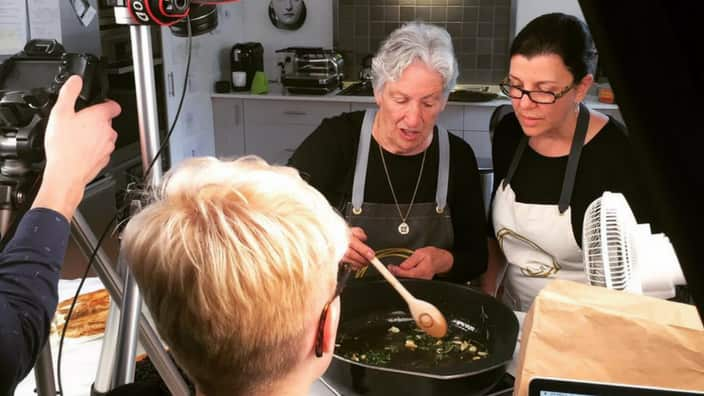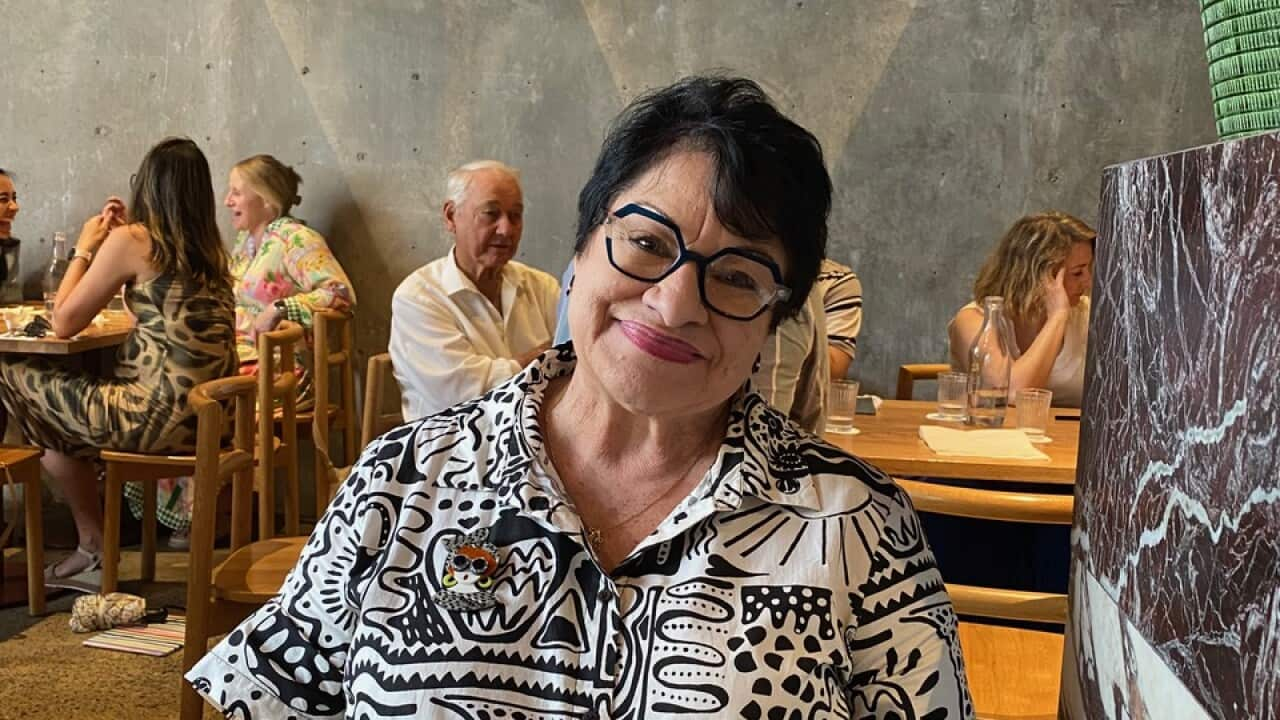Christine Polyzos was born in Melbourne in 1966 to Greek parents who migrated from Kastraki, a Greek village at the base of the Meteora.
A paediatric audiologist by trade, Christine began documenting her mother’s recipes when she was working in Adelaide so that she could cook and share them with her housemates.
“I enjoyed cooking and introducing our non-Greek friends to Greek cuisine (tourlou, spanakopita, prasopita, kolokithokeftedes, spanakorizo) and showing them that Greek food was so much more than meat and dips,” says Christine.
Some years later, in July 2012, Christine travelled back to Meteora with her husband and children and while celebrating her 46th birthday at a slow-food restaurant in Kalambaka, the idea of “Kali Orexi” was born.

“I was dining at a slow-food restaurant and reflected on the fact that these types of restaurants had decreased in their numbers over the years that I had visited Greece and I was very concerned that the Greek traditional slow food recipes would slowly disappear as well,” Christine Polyzos told SBS Greek.
Food for Greeks is an important cultural aspect. For the first generation who migrated to Australia, the handwritten recipe books they inherited from their grandmas and grandpas were some of the few belongings they squeezed in the suitcases they carried with them down under.
“For new immigrants, their traditional cuisine is a source of continuity in their lives, a constant in an otherwise foreign landscape, a new country, a new city, a new way of living. The traditional food provides that link to their identity, to their heritage, to their life in their mother country,” says Christine Polyzos.
Feeling that some of the traditional Greek recipes are disappearing, Christine put aside her career as an audiologist and, following her passion, started documenting grandparents (yiayiades and pappoudes) cooking their signature dishes, aiming to keep the Greek culinary heritage alive.

Does Christine believe that food connects people and cultures?
“Absolutely!" she replies. "The world is filled with people of different ethnicities and along with that different traditions, cultures and cuisines – a significant amount of food preparation is connected with cultural festivities and celebrations”.
Australia is undeniably a mosaic of cultures, but how important is it to keep one’s culinary heritage alive and pass on the knowledge to future generations?
“I think we need to make cooking and sharing together a meal an absolute priority in our lives" replies Christine.
"Food, shelter and companionship are the basic, but essential needs of all people. When we prepare food and share meals together we fulfil two of these very basic needs. We prepare these Greek dishes for our children from a very age, creating meaningful memories and connections with this food.
"As our children grow, we then have them help us prepare these dishes and learn how and the why – how to prepare these dishes and share the stories, the history of these dishes and the link to their heritage,” says Christine.
Greek cuisine is undoubtedly part of Australia’s culinary landscape and the tip Christine Polyzos shares with anyone who would like to give Greek cuisine a go is “Greek food is so much more than meat and dips - it’s more about the diverse and delicious way that vegetables, grains and legumes can be prepared.
"I’d tell them to start with simple dishes – Greek salad, tzatziki and slowly build their repertoire and in the case of all the special slow-cooked dishes I would say the more extra virgin olive oil the better. The beauty of cooking is it's not an exact science”.





